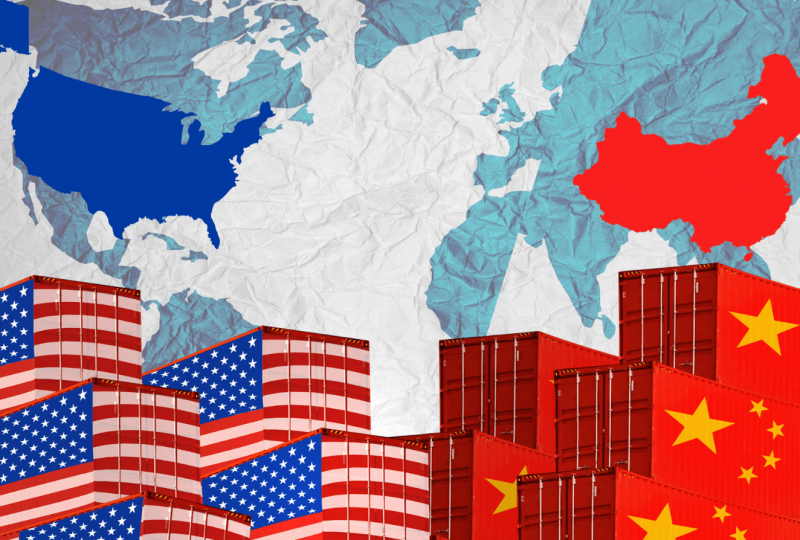Us-China Tech War: Shenzhen To Establish International Sourcing Platform For Semiconductors As Global Chip Shortage Persists
Jan 27, 2022

China will establish a global sourcing platform for semiconductors and integrated circuits in Shenzhen, the state's Silicon Valley and the wealthiest city on the central coast of southern province of Guangdong, in an effort to increase China's high-tech self-sufficiency amid a race among China and The United States to finally overcome the worldwide microchip shortages.
According to the strategic plan introduced on Wednesday by government financial planners the National Development and Reform Commission (NDRC) and the Ministry of Commerce, the aim is to attract different worldwide corporations engaged in the microelectronics industry, including producers and suppliers, as members of the proposed international platform in Shenzhen.
The plan implies that China would assist semiconductors and microchip corporations in setting up trade on the platform, allowing these enterprises to "promote local and abroad customers to acquire electronic parts and different kinds of microchips" using that same source.
"By selecting Shenzhen, we hope to create replicable and expandable technologies around relaxed market access limitations... to discover a more adaptable and scientific strategy and management system to form a solid socialist market economy," stated Zhao Chenxin, secretary general of the NDRC, at the briefing on Wednesday.
According to the plan, the southern city, which President Xi Jinping has chosen as a potential global innovation center and economic reform example, will also act as a significant site for procurement, software engineering, branding, and training, among other offerings.
With critical online and physical infrastructure, the authorities want Shenzhen-based enterprises to group with each other and acquire bigger influence when purchasing hardware, electronic parts, and raw materials.
According to the NDRC's data, Shenzhen's sourcing plan will also include extra help from the country's customs authorities and financial organizations in providing import and export paperwork, logistic support, as well as other associated cross-border assistance to each corporation that uses the suggested platform.
The program reflects Xi's strong optimism that Shenzhen will be a key economic driver for the Greater Bay Area development zone as the city pursues changes under the Chinese technology self-sufficiency policy.
The region's economy is expected to hit 4 trillion yuan (US$632 billion) by the end of 2025, rising from 2.8 trillion yuan in 2020, according to Shenzhen's 14th five-year plan from 2021 to 2025, announced by the Shenzhen administration last June.
Shenzhen, recognized as China's first experimental setup for market-opening changes, is home to numerous significant Chinese technological businesses, such as videogames and media titan Tencent Holdings, drone producer DJI, and telecoms equipment manufacturers Huawei Technologies Co and ZTE Corp. The Longhua Science & Technology Park also has a huge integrated chip facility for Semiconductor Manufacturing International Corp and the biggest fabrication complex on the mainland for Taiwanese company Foxconn Technology Group.
The country's current plan for Shenzhen, though, arrives at a time when the worldwide semiconductor shortages are causing havoc in a broad range of sectors, from toy makers, household appliances, video game consoles, and cellphones to those of medical equipment, automobiles, and aircraft.
The US Commerce Department stated on Tuesday that the worldwide microchip shortfall would last through at least the second half of 2022. According to Commerce Secretary Gina Raimondo, American authorities want to examine reports of suspected raising prices for microchips used by automakers and medical equipment producers.
According to Raimondo, evidence obtained by the Commerce Department from more than 150 businesses in the chip supply chain reveals "a major, continuous imbalance in supply and demand for semiconductors."
Meanwhile, the US House of Representatives passed comprehensive measures aimed at increasing American rivalry with China. The President of the United States, Joe Biden, stated that ideas in the "America Competes Act of 2022" will assist the nation in reintroducing manufacturing employment, alleviating supply chain bottlenecks in the microprocessor sector, and addressing the ecological issues.




